Selecting the perfect stone for your kitchen countertops can be a daunting task, given the myriad of options available in today’s market. The right choice can elevate your kitchen’s aesthetics, enhance functionality, and potentially increase your home’s value.
Kitchens need countertops that blend beauty with durability to handle daily demands. These surfaces are vital for cooking, eating, and hosting, blending style and utility. But what stone is best for kitchen countertops?
Each type of stone has unique characteristics, from durability and heat resistance to maintenance requirements and cost considerations. Choosing the best kitchen countertop involves weighing these factors against your specific needs and preferences.
This guide will explore the most popular stone choices, diving into their properties, appearance, and practical aspects. By the end, you’ll be prepared to make an informed decision that aligns with your lifestyle, budget, and design preferences.
What Stone Is Best for Kitchen Countertops
Granite
Granite is a popular choice for kitchen countertops, known for its durability and natural beauty. This igneous rock comes in a wide variety of colors and patterns, offering unique aesthetics for every kitchen.
One of the main advantages of granite is its longevity, often lasting for decades with proper care. It is highly resistant to heat, scratches, and stains when properly sealed.
However, granite requires periodic sealing to maintain its resistance to stains and bacteria. Pricing for granite countertops can vary widely, typically ranging from $40 to $100 per square foot installed.
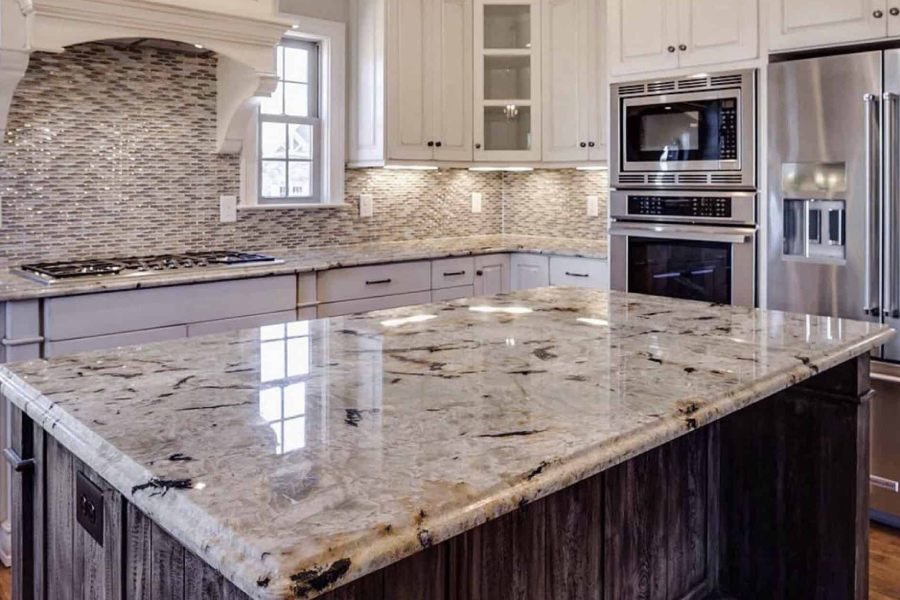
Quartz
Quartz countertops are engineered stone made from natural quartz crystals combined with resins and pigments. This material offers consistent patterns and a wide range of colors, making it a versatile choice for various kitchen styles. Quartz is non-porous, making it highly resistant to stains and bacteria.
The main advantage of quartz is its low maintenance, requiring no sealing and being easy to clean. However, it can be sensitive to extreme heat and may show seams in larger installations. Quartz countertops generally cost between $50 and $120 per square foot installed.
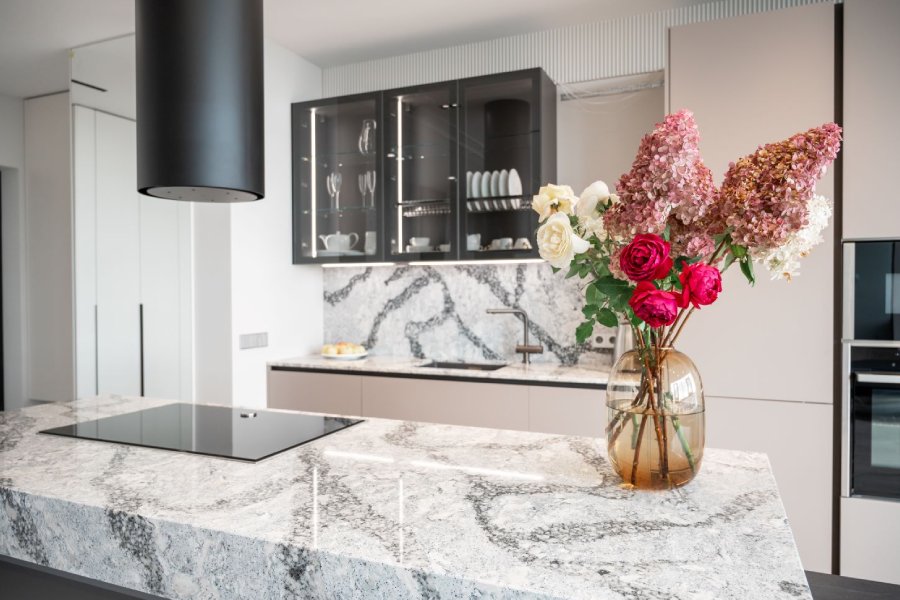
Marble
Marble countertops are prized for their elegant, luxurious appearance and unique veining patterns. This metamorphic rock adds a timeless beauty to any kitchen and is often favored by baking enthusiasts for its naturally cool surface. Marble comes in various colors, with white and gray being the most popular.
While marble offers unparalleled aesthetics, it is more porous and softer than granite or quartz, making it more susceptible to stains and scratches. Regular sealing is required to maintain its appearance. Marble countertops typically range from $40 to $100 per square foot installed.
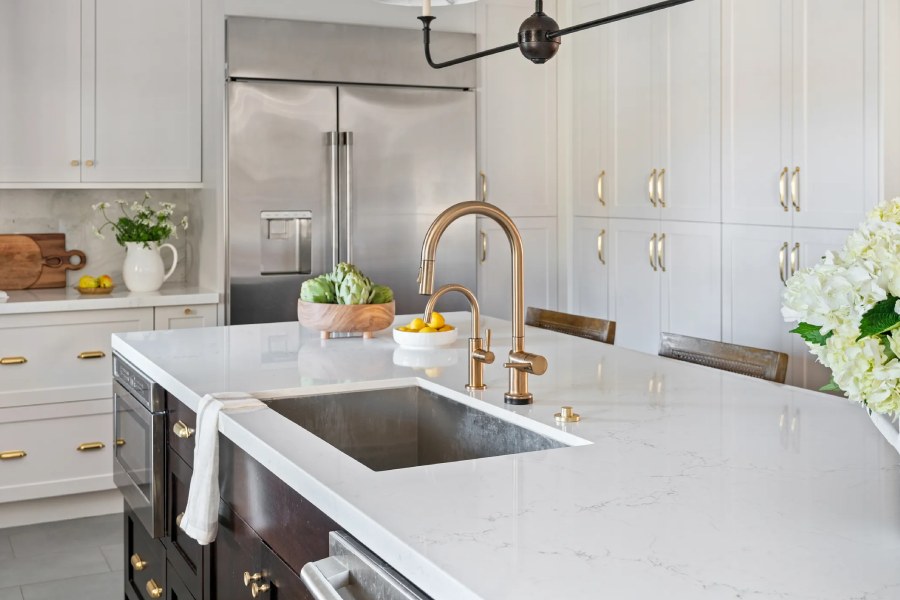
Soapstone
Soapstone is a natural quarried stone known for its soft, smooth texture and matte finish. It typically comes in shades of gray, often with subtle veining. Soapstone is non-porous and resistant to stains and bacteria, making it a practical choice for kitchens.
One of soapstone’s unique properties is its ability to darken over time, developing a rich patina. However, it can be prone to scratches and chips due to its softness. Soapstone countertops generally cost between $70 and $120 per square foot installed.
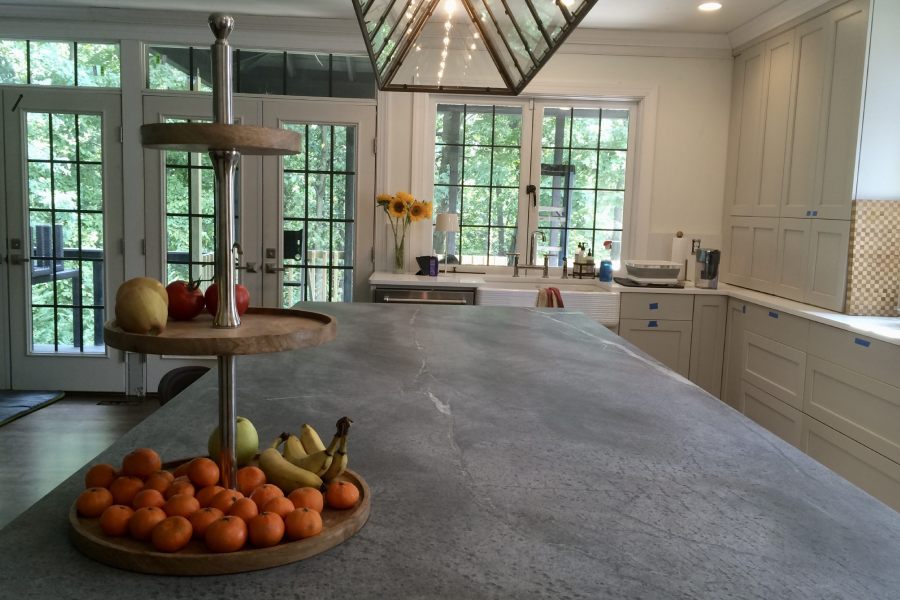
Slate
Slate countertops offer a sleek, contemporary look with their uniform color and subtle texture. This metamorphic rock is available in a range of earthy tones, from deep charcoal to soft gray. Slate is naturally non-porous, making it resistant to stains and bacteria.
Slate is durable and heat-resistant, requiring minimal maintenance. However, it can chip along the edges if subjected to heavy impacts. Slate countertops typically cost between $50 and $100 per square foot installed.
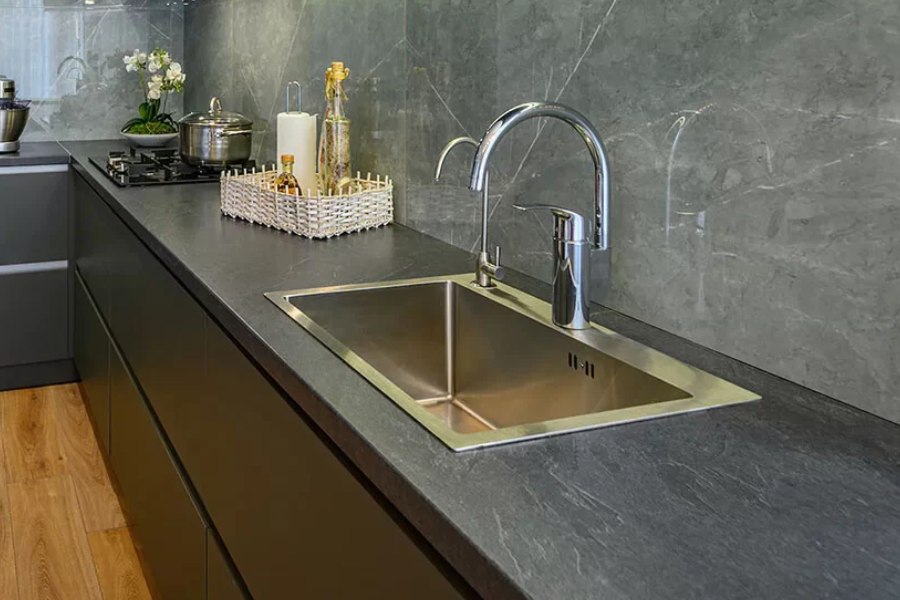
Limestone
Limestone countertops bring a warm, natural look to kitchens with their earthy tones and subtle fossilized patterns. This sedimentary rock offers a softer aesthetic compared to granite or marble. Limestone is available in various shades, from creamy whites to golden beiges.
While limestone adds character to a kitchen, it is more porous and softer than many other stone options. It requires regular sealing and careful maintenance to prevent staining and etching. Limestone countertops generally range from $70 to $130 per square foot installed.
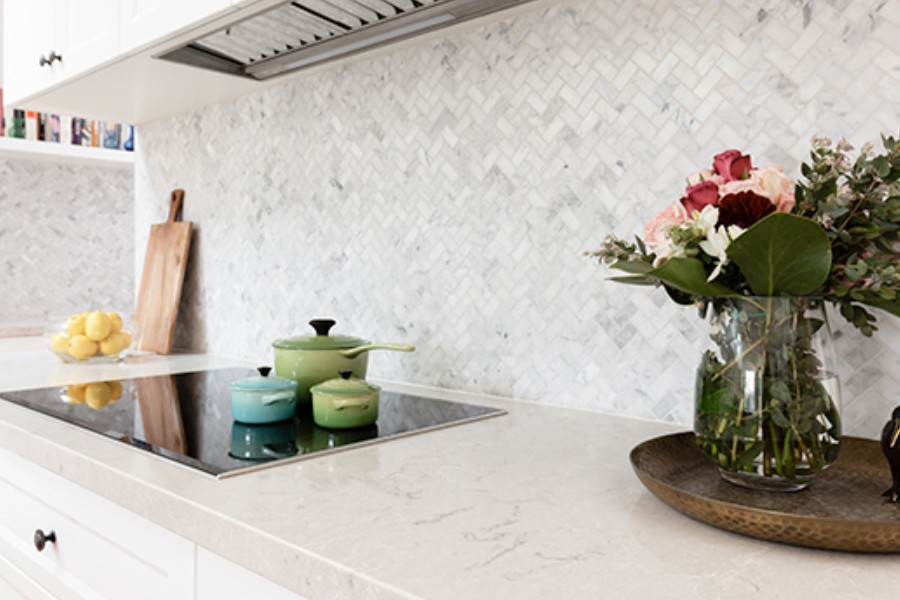
Travertine
Travertine countertops offer a distinctive, old-world charm with their pitted surface and warm, earthy colors. This type of limestone is formed by mineral springs and comes in various shades of beige, tan, and cream. Travertine can add a rustic or Mediterranean flair to kitchens.
One advantage of travertine is its unique, natural appearance. However, it is highly porous and susceptible to staining and etching from acidic substances. Regular sealing and careful maintenance are essential. Travertine countertops typically cost between $50 and $100 per square foot installed.
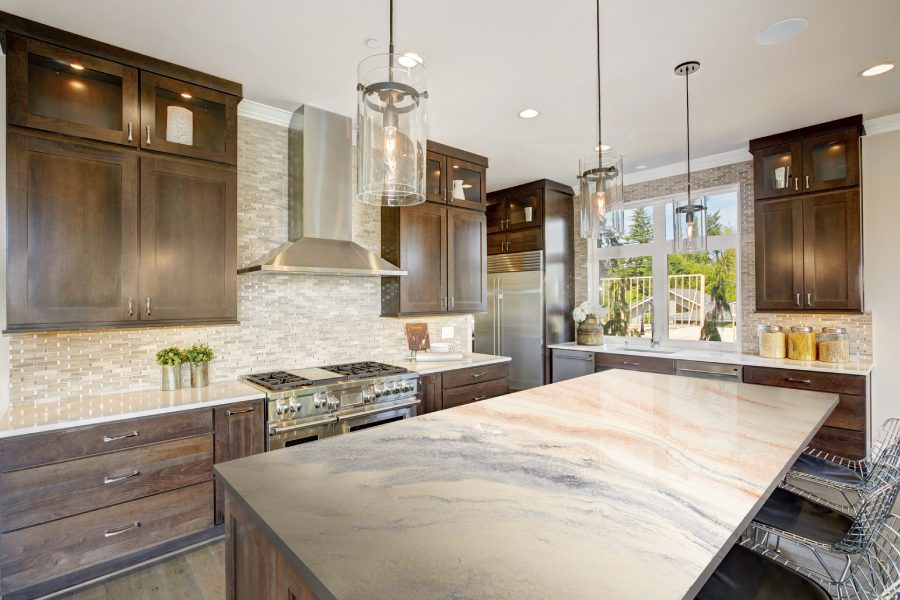
Onyx
Onyx countertops are a luxurious and exotic choice, known for their translucent quality and dramatic patterns. This rare stone comes in a variety of colors, often with striking veining or banding. Onyx can be backlit to create a stunning visual effect in high-end kitchens.
While onyx offers unparalleled beauty, it is one of the softest and most porous stone options for countertops. It requires meticulous care and is best suited for low-traffic areas or as accent pieces. Onyx is also one of the most expensive options, typically ranging from $150 to $250 per square foot installed.
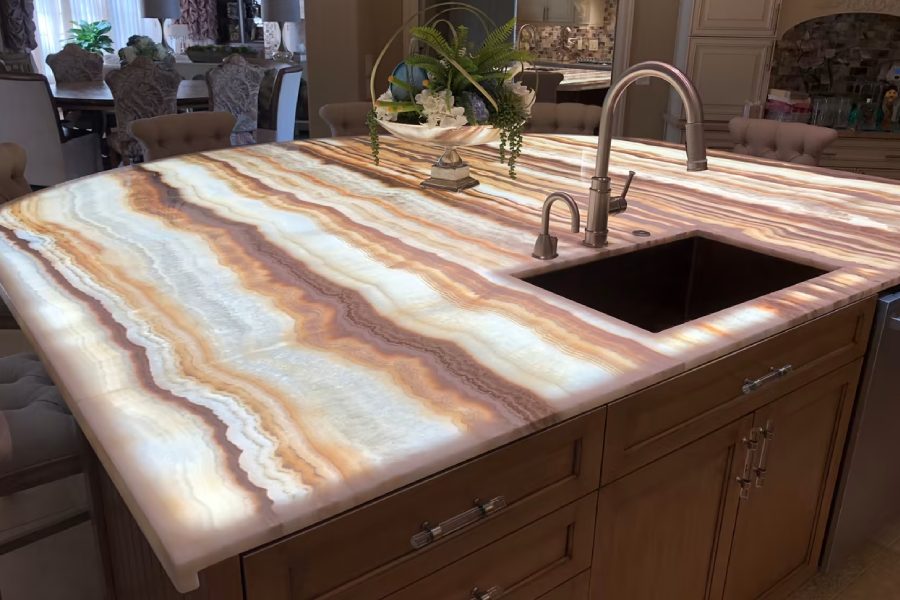
What Is the Cheapest Stone for Kitchen Countertops?
Granite and marble are typically the least expensive natural stone choices. While premium varieties can be costly, there are more affordable granite and marble options available. These offer durability and heat resistance, making them a popular choice for budget-conscious homeowners seeking a genuine stone countertop.
Conclusion
In conclusion, determining what stone is best for kitchen countertops depends on your unique needs, preferences, and budget. We’ve explored a range of options, from the durability and strength of granite to the luxurious appeal of marble and the ease of maintenance quartz provides.
Each stone type offers its own set of advantages and considerations. To make the best choice, it’s essential to weigh key factors such as durability, aesthetics, maintenance requirements, and cost. Your selection should not only enhance the beauty of your kitchen but also suit your daily cooking habits and lifestyle.
Ultimately, finding the right countertop means achieving the perfect balance between functionality and beauty, tailored to your personal needs. With this knowledge in hand, you’re ready to select a countertop that will elevate your kitchen for years to come.


